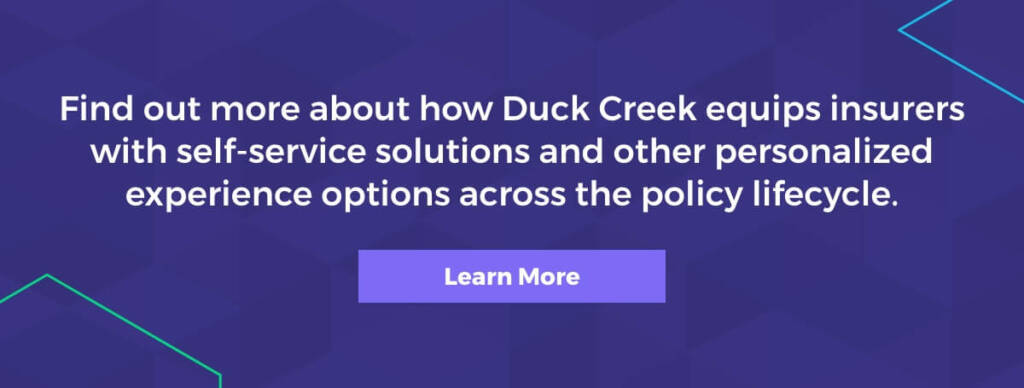The insurance industry has seen a shift in customer preference towards self-service portals, due to the rapid rise of tech-savvy customers. With the disruption caused by the global pandemic, customers now favor online channels for service delivery over conventional face-to-face communication.
In fact, a study by Acumen found that 45% of customers are more likely to use self-service than before the pandemic, and 82% of consumers are willing to give self-service options a try. Insurers must meet these customer expectations while also supporting their independent distribution channels and agents’ ability to provide services. Below, we discuss four ways insurers can pave the way for improved self-service options in the insurance industry.
1. Invest in Digital Platforms
Incorporating digital platforms into their operations can be a wise investment decision for insurers. By doing so, customers can purchase, renew, and manage their policies online, resulting in greater accessibility and convenience. Additionally, this approach can lead to reduced costs associated with traditional distribution channels.
It is important to note that building and maintaining a robust digital platform may require a significant upfront investment, but overall, this investment has the potential to enable insurers to broaden their reach and stay competitive in the modern marketplace.
2. Consider partnering with insurtech ecosystem innovators
The insurance sector has experienced significant disruption from insurtech ecosystem partners, leveraging innovative solutions to cater to evolving customer needs. As with other industries, the pandemic has also triggered digital acceleration in the insurance sector, enabling some insurance technology (insurtech) startups to benefit from their nimble and innovative digital-first offerings. Lemonade, for example, has introduced a new auto insurance offering, supported by acquiring insurance startup Metromile. To fully harness these cutting-edge capabilities, insurers may consider partnering with insurtech ecosystem partners bringing new data analytics and services to streamline the self-service experience.
This collaboration allows insurers to benefit from the agile and innovative landscape offered by ecosystem partners and integrate those capabilities into core systems, without incurring extensive costs in setting up their digital platforms.
However, insurers must proceed with caution, conducting due diligence on potential partners to ensure compliance with regulatory requirements. By forming mutually- beneficial partnerships with insurtech startups, insurers can unlock new growth opportunities while enhancing their customers’ experience.
3. Augment existing distribution channels with digital tools
Insurers can enhance their existing distribution channels through the implementation of digital tools, empowering agents and brokers to deliver significantly improved customer service. One such tool is the ability to quote and bind policies online, enabling insurers to maintain their efficiency while adapting to the self-service paradigm.
This will facilitate streamlined communication between agents, brokers, and customers, improving the customer experience and potentially increasing customer retention rates. Insurers who equip their intermediaries with digital tools are better prepared to maintain their competitive advantage in the market.
4. Provide customer education and support
The transition towards digital self-service poses a challenge for some customers who may not possess adequate knowledge of online channels. To overcome this hurdle, insurers must provide customer education and support to assist customers in navigating this new self-service paradigm.
In order to achieve this objective, insurers must devise online tutorials and webinars that educate their consumers on various aspects of purchasing and managing policies online.
This approach helps insurers not only retain their existing customer base but can also attract new clients who are comfortable with digital self-service, thereby enhancing their market share. Moreover, providing customer education and support is a critical aspect of ensuring customer satisfaction and loyalty, which in turn can increase the overall profitability of the insurer.






